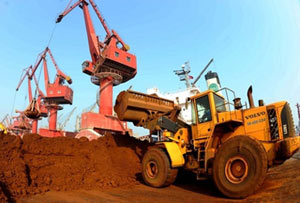Money
China needs to raise rates to cope with QE2
(Agencies)
Updated: 2010-11-05 11:04
 |
Large Medium Small |
BEIJING - China needs to increase interest rates to curb capital inflows driven by US monetary easing, an official newspaper said in an editorial on Friday.
Although such a move would increase the rate differential between China and the United States, which might by itself attract further cash from abroad, the China Securities Journal argued that raising interest rates would provide a net benefit by cooling domestic asset prices.
"We must not forget the Japan lesson. We must tighten internal policies to deal with external easing so as to avoid the formation of asset bubbles," the leading financial newspaper said in a front-page editorial.
| |||||||
China needs to be wary about asset bubbles because food-driven inflation pressure is on the rise and efforts to ward off hot-money inflows are less effective since other developing countries, including Brazil, South Korea and Thailand, are also trying to impose capital controls, it said.
"From this perspective, it's necessary for our country to enter a cycle of interest rate rises," it suggested. "The process of our capital account opening should also be controlled."
The editorial does not necessarily represent official policy, but it does reflect widespread worries in China about how to cope with a rise in international liquidity after the US Federal Reserve unveiled a fresh round of quantitative easing this week.
China raised interest rates last month for the first time in nearly three years, although the jury is out among economists about whether the next rate rise will come before the end of this year.
 Special Coverage: Rare as it is
Special Coverage: Rare as it is
